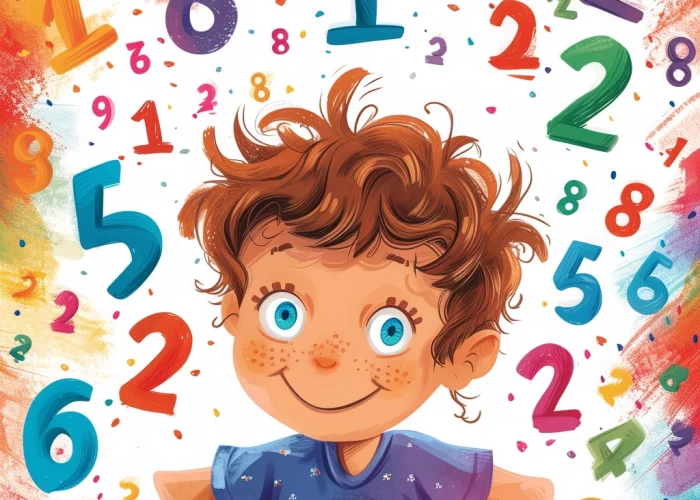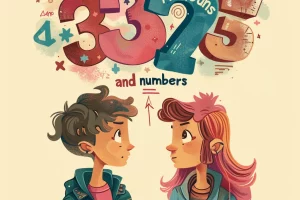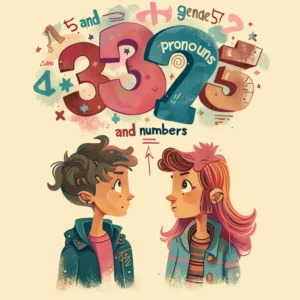Table of Contents
ToggleIntroduction
Mental math stays the basics and core of mathematics. Why? Because of the simplicity of mental math and the time saves when problem-solving. Basic math skills such as addition, subtraction, multiplication, and division are completely fundamental to mental math an athematic operation, a perfect grasp and you are looking at the next mathlete.
Did you know that if there are twenty-three people in a room, there is a 50% chance that two people may share a birthday? How do you know that? How do you calculate that? Using basic math skills and with this guide, you can too.
Imagine being able to solve an arithmetic equation with no worry at all, being able to impress your friends and academic companions with simple tricks!
Test your basic math skills.
- Addition Adventure: Calculate the sum of these numbers: 46 + 27 + 58 + 19.
- Subtraction Situation: Find the difference between 150 and 87.
- Multiplication Mission: Multiply fifteen by thirteen in your head.
- Division Dazzle: Divide 180 by six without writing anything down.
- Percentage Puzzle: What is 10% of 250?
- Double Trouble: Double the following numbers mentally: 35, 18, 42, 27.
- Decimal Dash: Subtract 2.5 from seven without using a calculator.
- Time Trial: If it is 3:45 PM now, what time will it be in 2 hours and 20 minutes?
Were they hard? If they were not, then your fundamentals are extraordinarily strong and impressive. However, there are ways to make you quicker while keeping the accuracy. Basic math skills depend on your ability to outthink the problem itself. Read information differently and interpret it towards a solution.
Simpler ways to basic math skills
Basic math skills are taught in a rudimentary fashion, they do not employ out-of-the-box thinking. Now try to solve the above problems using the tricks below:
- Addition: Always take each number to the nearest tenth place. For example, forty-six becomes 50, 27 becomes 30, 58 becomes 60 and 19 becomes twenty. Now remember, to add the tens up and subtract the leftovers. So, you have 160 – 10 = 150
- Subtraction: Like the above, always take your number to the nearest tenth place. That would mean eighty-seven being considered as ninety. So, 150 – 90 = 60. Now do not forget, we still need to consider the left over, 60-3 = 57.
- Multiplication: Remember to always multiply using the nearest tenth place. In this case, thirteen would become ten. So, you would (15×10) + (15×3) which would mean, 150 + 45 giving you 195.
- Division: Quite like multiplication, here always remember to remove any zero on either side. Instead of looking at it as 180/6, look at it as 18/6 which would give you three. Now, you are zero that you removed becomes a ten, so three-by-ten gives you thirty. The nearest tenth place is your best friend for the mental arithmetic formula.

5. Percentage: The trick with percentages is quite simple, always use decimals. What does that mean? Well, what is 10%, it is 10/100 which would give you 0.1. Now multiply 0.1 with 250 giving you a definitive answer of twenty-five. Confused still? Let us make it even simpler, every percentage is always a decimal to the first digit, 18 percent is 0.18, 20 percent is 0.2 etc. All one must do now is multiply that with the number to reveal your answer! Genius mental arithmetic is more basic than superpowers.
6. Patterns: With double trouble follow the same trick as addition, find the nearest tenth place and add the leftovers.
7. Decimal: When dealing with decimals, the trick is to focus on the numbers left of the decimal point. In our case, focus on the two only. Now, 7-2 will give five. Now we bring in the decimal. Remember decimals are always parts of a number, which means 0.5 is half of one. So, when we do a subtraction with 2.5, it will give you 4.5. Because from the resulting five above, you need another half of one number giving you 4.5.
8. Time calculations: It can seem complicated however, the answer is surprisingly simple and is already mentioned just above. Always focus on the hours first, so in our case that would be 3+2 which would give you 5 Pm. Now focus on the minutes 45+20 = 65 mins. Now we have an issue, 65mins means another hour. So, to the original five, add one to make it 6:05 P.m. as your definitive answer.

Things to keep in mind.
Strengthening your core math skills is essential for various academic and practical pursuits. Here is a structured approach to getting back to your basic math skills.
1. Review Arithmetic Operations:
Practice addition, subtraction, multiplication, and division of whole numbers, fractions, and decimals. Ensure mastery of basic arithmetic rules and properties.
2. Master Number Properties:
Understand even and odd numbers, prime numbers, factors, multiples, and divisibility rules. Practice identifying patterns and relationships among numbers.
3. Brush Up on Algebraic Concepts:
Review solving equations and inequalities, simplifying expressions, and manipulating algebraic expressions. Practice solving linear equations and systems of equations.
4. Enhance Geometry Skills:
Familiarize yourself with basic geometric shapes, their properties, and formulas for perimeter, area, and volume. Practice solving problems involving angles, triangles, quadrilaterals, circles, and solids.
5. Learn Basic Probability and Statistics:
Understand fundamental concepts such as probability, mean, median, mode, and range. Practice interpreting and analysing data sets, including graphs and charts.
6. Practice mental math and problem-solving:
Developmental math skills through regular practice. Solve a variety of math problems from various sources to strengthen problem-solving abilities.
7. Use Resources:
Use textbooks, online tutorials, and educational websites to access explanations, examples, and practice problems. Consider using math apps or software for interactive learning and practice.
8. Seek Help When Needed:
Do not hesitate to ask questions or seek assistance from teachers, tutors, or peers when encountering challenging concepts. Join study groups or online forums to engage with others and exchange ideas and solutions.
9. Practice Regularly:
Dedicate consistent time to practising math skills, ideally daily. Review previously learned concepts regularly to reinforce understanding and retention.
10. Stay Positive and Persistent:
Embrace a growth mindset and believe in your ability to improve with effort and practice. Celebrate progress and persevere through challenges to achieve your math goals.
By following these steps and keeping a dedicated practice regimen, you can effectively strengthen your core math skills and build a solid foundation on your basic math skills also help you prepare for advanced mathematical concepts and applications.

How does basic math skills help you?
Basic math skills and problem solving has always been a prize trait, both to impress your friends and to make your life easier without the need for any technological help. Here are some ways it can help you:
- Brain Boost: Mental math is not just about numbers; it is about making your brain stronger. It is like doing push-ups for your mind, making you better at solving problems and thinking smart.
- Quick Thinker: Want to be as fast as The Flash? Mental math helps you think on your feet, making you quick at figuring things out – whether it is splitting a pizza with friends or calculating how much time you have left before your favourite show starts.
- Memory Magic: Say goodbye to forgetting stuff! Mental math helps you remember things better by exercising your memory muscles. It is like having a supercharged memory that never lets you down.
- Focus Power: Ever wish you could concentrate better? Mental math trains your brain to focus like a laser beam. No more getting distracted – you will be a math ninja, zoned in and ready to conquer any problem.
- Confidence Boost: Feeling unsure about math? Mental arithmetic builds your confidence by showing you that you have got what it takes to tackle any math challenge. It is like having a secret weapon that makes you feel unstoppable!
Remember, do not rush! Fundamental and basic math skills at a moment’s notice takes a lot of time and effort. Try to solve each problem in your head, once you have your answers, check them using a calculator to see how well you did. With practice, you will become a mental math expert in no time!
Unlock the power of your mind with Scott Flansburg, the Human Calculator! Transform your numeracy skills and become faster than a calculator with our exclusive mental math course.
Sign up today and start mastering mental math like a pro! Don’t wait, join the numeracy revolution now!


